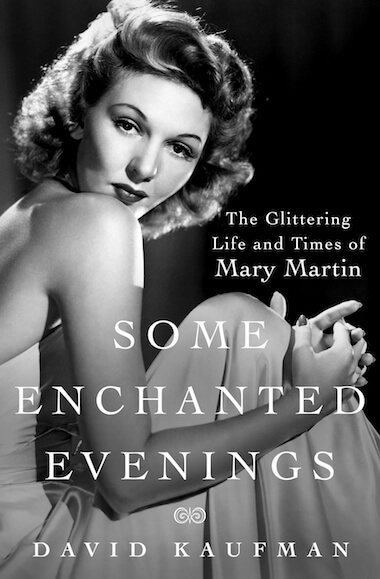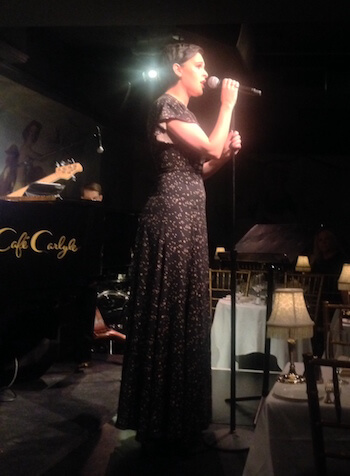Ron Cook, Deborah Findlay, and Francesca Annis in Lucy Kirkwood’s new play, “The Children.” | JOAN MARCUS
Welcome back to dystopia. In Lucy Kirkwood’s new play, “The Children,” we once again find ourselves in a post-apocalyptic world. In this case, it’s the aftermath of a nuclear disaster in a remote cottage in England after an ill-planned plant near the coast erupted in an accident and poisoned the environment, perhaps for generations.
Robin and Hazel, a long-married couple and nuclear physicists, still live in the shadow of the plant in an uneasy stasis of survival and waiting for inevitable… what? We’re not exactly sure, but it won’t be good, and a sense of gloomy foreboding lingers over the grubby cottage with questionable plumbing and few, if any, luxuries. Miriam Buether’s evocative set is disconcertingly askew, creating palpable discomfort from the outset.
The action is precipitated by the arrival of Rose, a fellow scientist who hasn’t seen Robin or Hazel in decades. Rose first appears in the midst of a prodigious nosebleed and the bloodletting, subsequently metaphoric, continues from there. It seems Rose has romantic history with Robin and so long-subdued resentments and concerns bubble up to the surface over the course of the nearly two-hour one-act.
Three new plays about women in trying times
The children in question are not Robin and Hazel’s four biological children, but the next generation that is going to have to deal with the mess created by the world run by the likes of Robin, Hazel, and Rose. The question of what, if any, obligation is owed to those who come after is a central theme of the play. What makes it fascinating, however, is that for all the concern about civilization’s future, the characters are mired in their comparatively petty grievances. The play becomes a fascinating commentary on how personalities and ego undermine more noble natures as well as on the ongoing tension between our emotional and intellectual selves.
Given that the play involves three characters in a tight environment, the play is talky, punctuated by some comedy from both the plumbing and a fight between the women that leads to a surprising consequence. Playwright Kirkwood only reveals what she’s about slowly, so there are some sections of the play that can be baffling, and it’s only as the drama accumulates that the audience discovers what’s afoot. The heft of the dialogue is lightened by the consistently wonderful performances of the three actors.
Ron Cook is the resolutely upbeat center of a lot of the action — and the tension between the women. Francesca Annis as Rose plays a psychological game as her motives are revealed. She is a wonderful counterpoint to Deborah Findlay as Hazel, who is determined through yoga and yogurt to stay healthy against all odds. And there are some pretty intense odds.
Tightly directed by James Macdonald, the piece deftly balances the horror of human-caused environmental destruction with the wounds we can’t help but inflict on one another by our nature. It is a classic theme that recalls John Dryden’s 17th century lament: “Poor mortals that are clogged with earth below.” Much as we might rail against it, the sad human truth is that destruction — of all types — is in our nature.
Ellen Parker, Franchelle Stewart Dorn, Polly Draper, and Kathryn Grody in Susan Miller’s “”20th Century Blues.” | JOAN MARCUS
The essential question of “20th Century Blues,” Susan Miller’s new play can be summed up in the lyric from Noël Coward’s song of the same name: “What is there to strive for/ love or keep alive for?”
If this gentle and affectionate play about women’s friendships over 40 years, were just a “women’s play,” it wouldn’t be as affecting as it is. Rather, it is a play about aging, time, how we change, what’s gained, and what’s lost. This is not the most original concept, to be sure, but Miller’s expression is always compelling, and even when it feels a bit contrived there is an emotional ground that rings true.
Danny — a woman — is a photographer who has been taking pictures of three friends over the past 40 years. They gather every year to keep tabs on one another and pose for a photo. When a gallery asks for a retrospective of Danny’s work, she wants to use the photos of her friends. When presented with a release form, each of them has issues with something that was personal and intimate suddenly being seen by the public. For each of them, the photos chronicle a life and connection, and the vulnerability that comes with the potential of merely being seen as random people getting older is real and more than a bit threatening to their histories and identities.
It’s a timely theme as an aging population wrestles with becoming invisible and marginalized even as they still feel very much alive. If Miller’s characters sometimes seem a little bit like literary devices manipulated to make points, they are nonetheless appealing, thanks to the outstanding cast. Polly Draper as Danny and Ellen Parker, Franchelle Stewart Dorn, and Kathryn Grody as the friends are fully believable as people who have known each other for four decades, and the shifting dynamics among a group of friends who have known one another for so long is one of the principle pleasures of the play. Seen through this lens, even when the plotting seems forced, it is the connection among the women that keeps the production in focus.
Joanne Hartstone in her one-woman show “The Girl Who Jumped Off The Hollywood Sign.” | TOM KITNEY
An eager, ambitious, and basically innocent woman is ground up in the Hollywood machine. Sounds very timely, doesn’t it? Actually, it’s timeless because “The Girl Who Jumped Off The Hollywood Sign” is set in 1949. The girl in question, one Evie Edwards, an aspiring starlet at the end of her rope, is about to follow in the footsteps of Peg Entwistle who really did commit suicide by leaping off the sign, presumably driven to it by her failure to break into the movies.
This account is fictional, however, and as written and performed by Joanne Hartstone, it’s a heartfelt look at dreams and the desperation that comes from having lost everything and feeling there’s nothing else to live for. And so, she finds herself in the center of the “H” teetering on the brink of a fatal plunge.
First, though, Evie is going to tell us the story of how she got there. It’s quite a tale, starting in a Hooverville in Missouri and ending up in LA. Her mother dead, her father has moved to California and film-struck Evie (her real name is Evelyn) wants to be a star. She recounts her unfortunate misadventures in the film trade, punctuated by flashbacks and songs that simply, but effectively convey Hollywood of the late 1940s.
Hartstone has the speech patterns down and a bright-eyed urgency about her that’s endearing and pitiful at the same time. It’s clear Evie is not cut out to give what it takes to be a star, including some questionable moral choices. She’s got a great voice and an ear for mimicking styles like Judy Garland as she takes us on her tragic journey.
Under the direction of Vince Fusco, the piece is clear as Evie moves in and out of fantasy sequences. Set designer Tom Kitney has given her the top half of the “H” to balance on, which Hartstone deftly leaves during these interludes.
This is a warm and entertaining 70 minutes, in which we see that the challenges of showbiz are a constant — and a constant drain on the soul for those not in the pantheon of stars. Does Evie leap? I’m not telling, but you should jump at the chance to see this wonderful performance.
THE CHILDREN | Samuel J. Friedman Theater, 261 W. 47th St. | Through Feb. 4: Tue.-Wed. at 7 p.m.; Thu.-Sat at 8 p.m.; Wed., Sat.-Sun. at 2 p.m. | $60-$149 at telecharge.com or 212-239-6200 | One hr., 50 mins., no intermission
20TH CENTURY BLUES | Griffin Theatre, Pershing Square Signature Center, 480 W. 42nd St. | Through Jan. 28: Tue.-Fri at 7:30 p.m.; Sat. at 8 p.m.; Wed., Sat.-Sun. at 2 p.m. | $79-$99 at ticketcentral.com or 212-279-4200 | One hr., 40 mins., no intermission
THE GIRL WHO JUMPED OFF THE HOLLYWOOD SIGN | Theater for the New City | 155 First Ave. at E. 10th St. | Through Jan. 21: Tue.-Sat. at 8 p.m.; Sat.-Sun. at 3 p.m. | $20 at smarttix.com





































